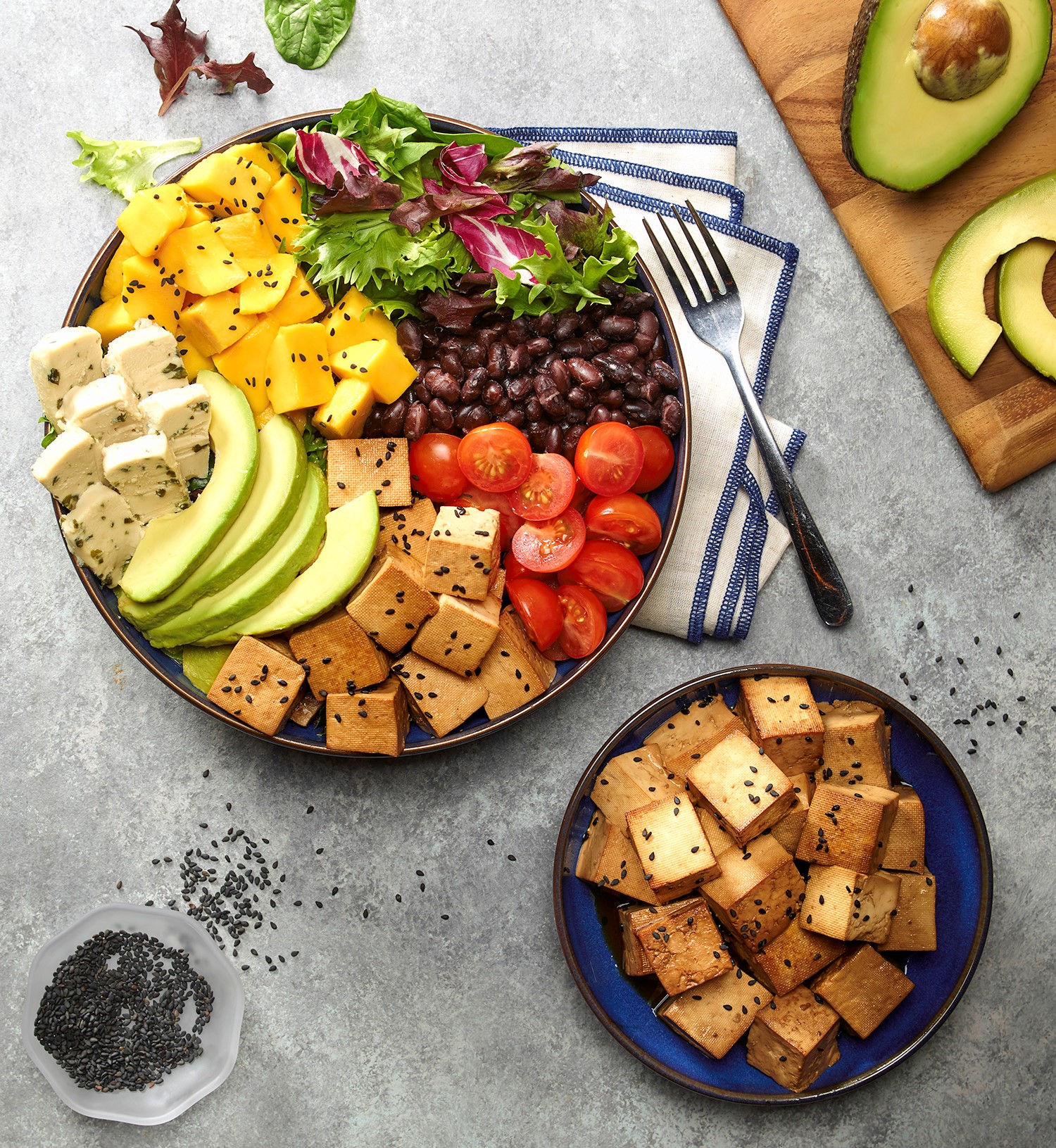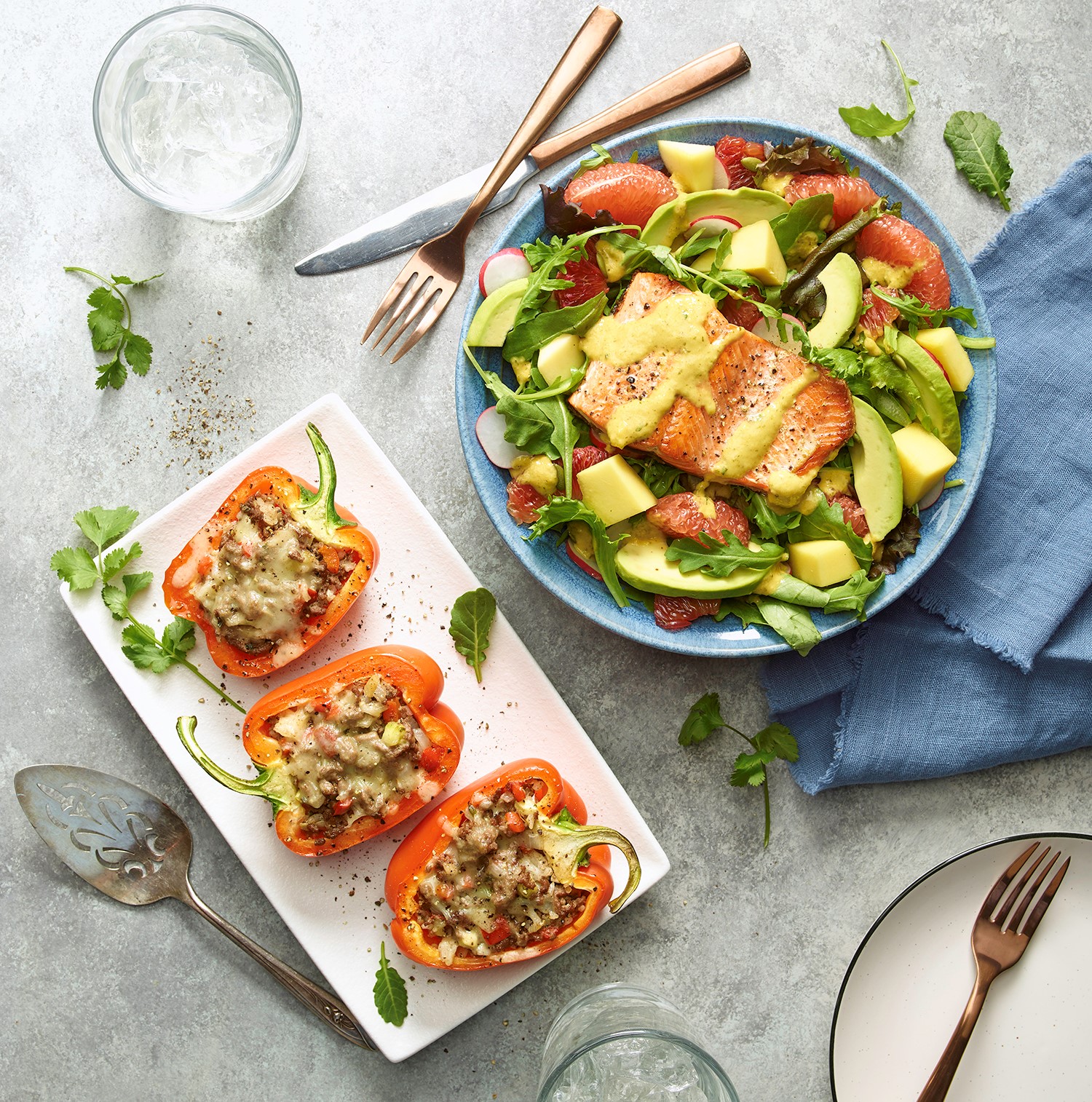Did you know? Women aged 18-50 require 1000 mg of calcium daily.
Women have unique nutritional needs, and their daily requirements for vitamins and minerals change depending on age, diet, and lifestyle.
Hormonal changes occur throughout our lives as we travel through experiences such as premenstrual syndrome, pregnancy, menopause, and post-menopause.
It is also important to note that many common medications may also deplete or interact with important vitamins and minerals.
Save-On-Foods is committed to supporting women’s health through the entire journey of life, and our pharmacists are available to review your medications.
Iron is necessary for the formation of the red blood cells that carry oxygen to all our tissues and cells. The recommended iron intake can be higher for women under 50 due to menstruation, pregnancy, and nursing. Iron is an essential nutrient, meaning that it is vital to get it from food, and it is interesting to note that the amount of iron your body absorbs is impacted by how much you already have stored. You can experience a deficiency if you’re not replacing it at the same rate as your body is using it, and this can lead to anemia and fatigue. Some foods to include in your diet that are high in iron are spinach, shellfish, legumes, pumpkin seeds, red meat, fish, quinoa, tofu, broccoli, and dark chocolate.
Magnesium requirements go up for women as they get older or if they are pregnant. Magnesium is involved in hundreds of chemical reactions within your body and is an essential mineral to help maintain healthy bones and teeth, as well as heart and energy processes. Avocados, leafy greens, tofu, bananas, beans, nuts, seeds, legumes, salmon, mackerel, halibut, whole grains, potatoes with skin, and dark chocolate are all good sources of magnesium.
A healthy intake of calcium and Vitamin D can help reduce the risk of osteoporosis. Calcium is essential to keeping your body functioning properly and is stored in your bones. Your body needs Vitamin D to absorb the calcium. Getting enough bone-supporting nutrients will help to keep your bones strong and dense. Some foods high in calcium are leafy greens, salmon, tuna, cheese, yogurt, eggs, broccoli, almonds, white beans, and calcium fortified foods. Because bone cells are continuously being broken down and replaced by new ones, it is best to spread out your calcium intake throughout the day.
Strength training and weight-bearing exercises can also help you build and maintain strong bones. Getting enough protein, eating lots of vegetables, and maintaining a stable, healthy weight are additional factors in maintaining good bone health throughout your life.
Save-On-Foods salutes all the women in our communities, and we are proud to be able to support women’s health through nutrition and supplements. Our pharmacists are available to answer any health questions you have.

 Share This Post
Share This Post













